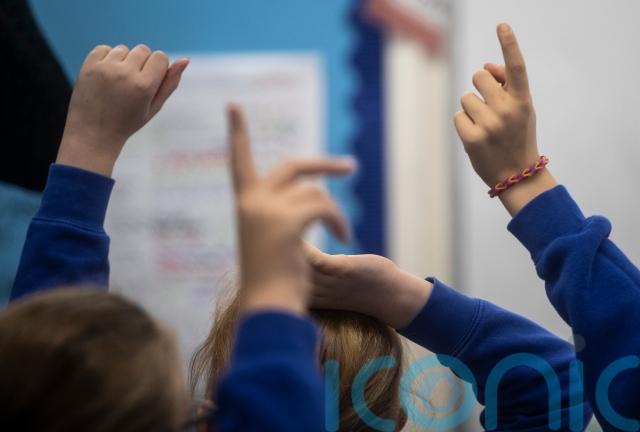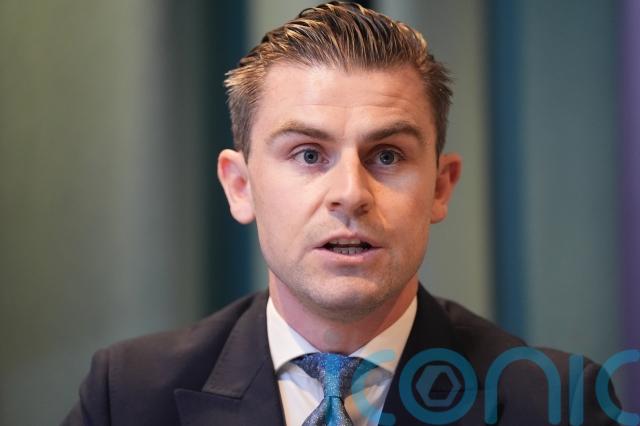
The provision of Christian religious education in Northern Ireland schools does not comply with human rights standards and is unlawful, the UK Supreme Court has ruled.
In a landmark judgment, the court upheld an appeal brought by a pupil at a Belfast school and her father and reinstated an earlier court ruling that the teaching of RE and collective worship breaches human rights as it does not approach the subject in an “objective, critical and pluralist manner”.
Stormont’s Department of Education has said it will provide advice to schools on the “complex” judgment in the near future.
The pupil, known as JR87, was at a controlled primary school in Belfast in 2019 when, as part of the curriculum, she took part in non-denominational Christian religious education and collective worship.
Her parents wrote a letter to the school voicing concerns that their daughter’s education did not appear to conform with their own religious and philosophical convictions.
In a reply, the school confirmed its provision of religious education and collective worship was “Bible-based” and that it followed the core syllabus for education.

JR87 and her father, known as G, challenged the legality of this and sought judicial review against the Department of Education.
Their lawyers argued the religious education and collective worship in the school contravened their human rights requiring the state to provide education to “respect the right of parents to ensure such education is in conformity with their own religious and philosophical convictions”.
The High Court in Belfast found in favour of the family in 2022 and said the Christian RE taught and collective worship in schools in Northern Ireland is unlawful.
However, this was overturned by the Court of Appeal, so the family took their case to the Supreme Court.
In a unanimous judgment delivered on Wednesday, the UK’s highest court allowed the appeal brought by JR87 and G and dismissed a cross-appeal brought by the department.
Delivering the judgment, Lord Stephens said: “The Court of Appeal was wrong in its application of established principles of ECHR law and should not have departed from the (High Court) judge’s finding that the parents had valid concerns in relation to withdrawing JR87 from religious education and collective worship.
“Furthermore, the Court of Appeal fell into error in making a distinction between indoctrination and the state conveying information or knowledge in a manner which was not objective, critical, and pluralistic.
“The concepts are two sides of the same coin: conveying knowledge in a manner that is not objective, critical, and pluralistic amounts to pursuing the aim of indoctrination.”
Lord Stephens also said the Court of Appeal ought to have found that having to withdraw JR87 from religious education was “capable of placing an undue burden” on her parents.
He said the judgment “was not about secularism in the education system” and made clear that “no one is suggesting that RE should not be provided in schools in Northern Ireland”.
Lord Stephens added: “The family strongly support the provision of religious education provided it does not amount to indoctrination.”

Responding to the judgment, Darragh Mackin of Phoenix Law, solicitor for JR87 and her father, said it was a “watershed moment” for educational rights.
He said: “The Supreme Court has confirmed that all children are entitled to an education that respects their freedom of thought, conscience, and religion.
“The judgment makes clear that the State cannot rely on withdrawal mechanisms to justify religious instruction.
“Schools must not place children in the impossible position of being singled out or stigmatised simply because their families do not share the religious worldview embedded in the curriculum.”
A Department of Education spokesperson said: “The department notes the UK Supreme Court’s judgment.
“We will carefully consider the complex judgment and its implications and will provide advice to schools in the near future.”

DUP deputy leader and former education minister in Northern Ireland Michelle McIlveen described the court ruling as “deeply disappointing”.
She said: “While we respect the court and the legal process, this ruling will concern many parents, governors, teachers and faith communities across Northern Ireland for whom the ethos is so important.
“For generations, Christian values have shaped the moral character of our school system.
“Through assemblies, school activities and the everyday life of the classroom, those values have helped form young people with integrity and respect for others.
“That heritage is not something we apologise for, nor is it something we are prepared to see diminished.”
Humanists UK has called on the UK Government to “urgently review” the RE and collective worship laws in state schools in England.
Education campaigns manager Lewis Young said: “Today’s judgment makes it crystal clear that you cannot respect families’ human rights simply by telling them they can opt out of a system that is, at its core, religiously one-sided.
“In light of this ruling, the position on faith-based RE and collective worship has become impossible to justify.
“The UK Government must urgently review the RE and collective worship laws in England and move to replace them with inclusive assemblies and teaching that respect every child’s freedom of belief.”
Subscribe or register today to discover more from DonegalLive.ie
Buy the e-paper of the Donegal Democrat, Donegal People's Press, Donegal Post and Inish Times here for instant access to Donegal's premier news titles.
Keep up with the latest news from Donegal with our daily newsletter featuring the most important stories of the day delivered to your inbox every evening at 5pm.